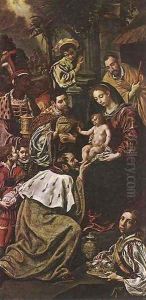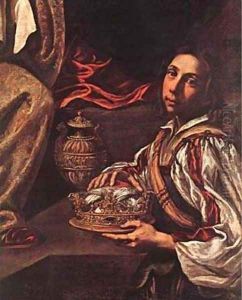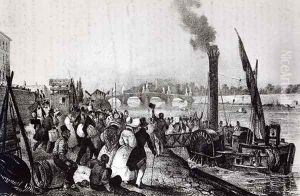Flora Tristan Paintings
Flora Tristan was a French-Peruvian socialist writer and activist, widely recognized for her contributions to early feminist theory and her social critiques during the early 19th century. Born Flore-Celestine-Therèse-Henriette Tristan-Moscoso on April 7, 1803, in Paris, France, she was the daughter of a Peruvian aristocrat and a French mother. Her unique cultural background and the early death of her father, which left the family in financial hardship, significantly influenced her perspectives and her later work.
Tristan's life was punctuated by personal struggles, including an unhappy and abusive marriage from which she sought separation, a rarity and a socially difficult process at the time. These personal challenges, along with her experiences among the working class, galvanized her to advocate for the rights of women and workers.
Her most notable works include 'Pérégrinations d'une paria' (1838), an account of her journey to Peru, where she attempted to claim an inheritance, and 'L'Union ouvrière' (1843), where she proposed the creation of a workers' union to fight for the rights of the working class. Tristan was also one of the first to argue for the emancipation of women as part of a broader social reform, making her one of the early pioneers in feminist thought.
Flora Tristan died on November 14, 1844, in Bordeaux, France, from typhoid fever. Despite her relatively short life, her ideas had a lasting impact on both the feminist movement and workers' rights. She is often remembered as a key figure in the history of social and feminist activism.


